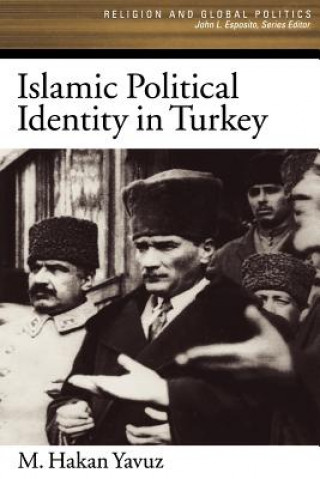
Code: 04516798
Islamic Political Identity in Turkey
by M. Hakan Yavuz
In November of 2002, the Justice and Development Party swept to victory in the Turkish parliamentary elections. Because of the party's Islamic roots, its electoral triumph has sparked a host of questions both in Turkey and in the ... more
- Language:
 English
English - Binding: Paperback
- Number of pages: 336
Publisher: Oxford University Press Inc, 2005
- More about this

You might also like
-

World of Agatha Christie
7.15 € -18 % -

Murphy's Revenge
10.08 € -4 % -

Pattern Formation In The Physical And Biological Sciences
81.21 € -

European Identity
182.21 € -
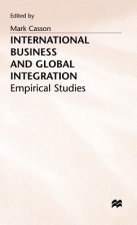
International Business and Global Integration
121.07 € -

Ionic Solids At High Temperatures
204.71 € -

Blood, Sweat and Tyres
12.90 € -9 %
Give this book as a present today
- Order book and choose Gift Order.
- We will send you book gift voucher at once. You can give it out to anyone.
- Book will be send to donee, nothing more to care about.
More about Islamic Political Identity in Turkey
You get 179 loyalty points
 Book synopsis
Book synopsis
In November of 2002, the Justice and Development Party swept to victory in the Turkish parliamentary elections. Because of the party's Islamic roots, its electoral triumph has sparked a host of questions both in Turkey and in the West: Does the party harbor a secret Islamist agenda? Will the new government seek to overturn nearly a century of secularization stemming from Kemal Ataturk's early-twentieth-century reforms? Most fundamentally, is Islam compatible with democracy? In this penetrating work, M. Hakan Yavuz seeks to answer these questions, and to provide a comprehensive analysis of Islamic political identity in Turkey. He begins in the early twentieth century, when Kemal Ataturk led Turkey through a process of rapid secularization and crushed Islamic opposition to his authoritarian rule. Yavuz argues that since Ataturk's death in 1938, however, Turkey has been gradually moving away from his militant secularism and experiencing "a quiet Muslim reformation." Islamic political identity is not homogeneous, says Yavuz, but can be modern and progressive as well as conservative and potentially authoritarian. While the West has traditionally seen Kemalism as an engine for reform against "reactionary" political Islam, in fact the Kemalist establishment has traditionally used the "Islamic threat" as an excuse to avoid democratization and thus hold on to power. Yavuz offers an account of the "soft coup" of 1997, in which the Kemalist military-bureaucratic establishment overthrew the democratically elected coalition government, which was led by the pro-Islamic Refah party. He argues that the soft coup plunged Turkey into a renewed legitimacy crisis which can only be resolved by the liberalization of the political system. The book ends with a discussion of the most recent election and its implications for Turkey and the Muslim world. Yavuz argues that Islamic social movements can be important agents for promoting a democratic and pluralistic society, and that the Turkish example holds long term promise for the rest of the Muslim world. Based on extensive fieldwork and interviews, this work offers a sophisticated new understanding of the role of political Islam in one of the world's most strategically important countries.
 Book details
Book details
Book category Books in English Society & social sciences Society & culture: general Social groups
71.53 €
- Full title: Islamic Political Identity in Turkey
- Author: M. Hakan Yavuz
- Language:
 English
English - Binding: Paperback
- Number of pages: 336
- EAN: 9780195188233
- ISBN: 0195188233
- ID: 04516798
- Publisher: Oxford University Press Inc
- Weight: 485 g
- Dimensions: 235 × 152 × 20 mm
- Date of publishing: 24. November 2005
Trending among others
-

Women Who Run with the Wolves
9.88 € -17 % -

Women Who Run With The Wolves
13.51 € -29 % -

Second Sex
15.12 € -23 % -

The Way of Men
13.01 € -23 % -

The Velvet Rage
16.23 € -23 % -

Why Does He Do That?
16.54 € -17 % -

Letters to a Young Muslim
12.90 € -17 % -
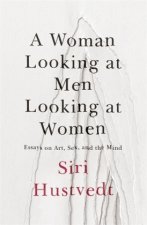
Woman Looking at Men Looking at Women
12.20 € -27 % -

Male Brain
12.40 € -21 % -

Humans of New York
25.72 € -16 % -

Black Elk Speaks
20.47 € -10 % -

Raising Kanye
16.03 € -20 % -

Triumph of the City
10.99 € -25 % -

Lost Keys of Freemasonry
9.78 € -19 % -

Witches, Witch-hunting, And Women
12.80 € -15 % -

Sioux Chef's Indigenous Kitchen
30.36 € -14 % -

By Any Means Necessary
13.01 € -19 % -

North American Indians
15.12 € -20 % -

NATIVE AMERICAN MYTHS
18.25 € -28 % -
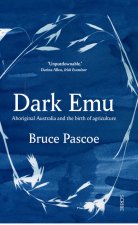
Dark Emu
15.23 € -28 % -

Maimonides-Essential Teachings on Jewish Faith & Ethics
16.13 € -19 % -

Dona Gracia of the House of Nasi
23.30 € -19 % -

Duke of Naxos of the House of Nasi
23.30 € -19 % -

Beginner's Ladino with Online Audio
17.24 € -17 % -

Navajo Coyote Tales
16.13 € -19 % -

The Politically Incorrect Guide to Jihad
18.25 € -20 % -

Manipulated Man
14.22 € -16 % -

Think Like a Monk
14.52 € -29 % -

The Mastery of Love
12.30 € -19 % -

Iron John
17.14 € -18 % -

Hillbilly Elegy
12.70 € -36 % -

Goddesses in Everywoman
12.20 € -22 % -

Who Cooked the Last Supper?
19.77 € -6 % -

The Autobiography of Malcolm X
10.48 € -7 % -
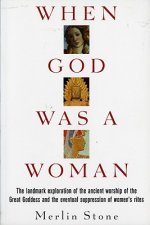
When God Was A Woman
19.66 € -2 % -

Lean In
12.80 € -23 % -
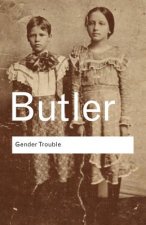
Gender Trouble
27.13 € -
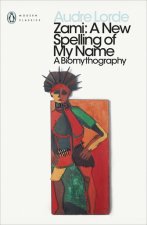
Zami
10.08 € -24 % -

Tom of Finland. The Complete Kake Comics
21.08 € -

Desert Flower
10.08 € -24 % -

Uncle Tom's Cabin
4.83 € -19 % -

Indigenous Peoples' History of the United States
15.43 € -15 % -

Deepest Well
16.54 € -17 % -

Like She Owns the Place
17.24 € -21 % -

Hillbilly Elegy
21.08 € -

Autobiography of Malcolm X
10.18 € -23 % -

Native American Clothing
55.58 € -14 % -

Nice Girls Don't Get The Corner Office
9.78 € -24 % -

The Male Nude
18.25 € -9 %
Collection points Bratislava a 2642 dalších
Copyright ©2008-24 najlacnejsie-knihy.sk All rights reservedPrivacyCookies



 15549 collection points
15549 collection points Delivery 2.99 €
Delivery 2.99 € 02/210 210 99 (8-15.30h)
02/210 210 99 (8-15.30h)